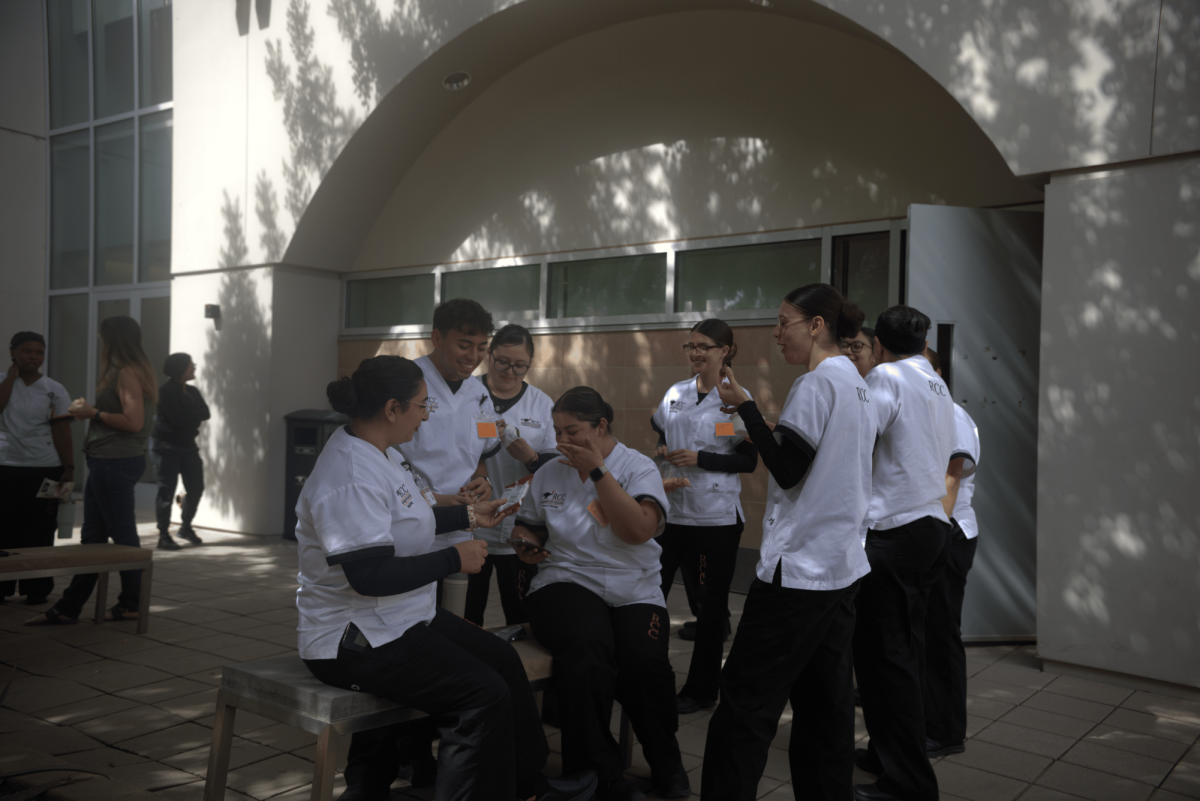
Marissa Perez
Riverside City College Nursing students take a break between classes outside nursing building
The Riverside Community College District will once again attempt to offer a resolution to California’s healthcare workforce shortages by pushing legislation to allow baccalaureate-level nursing education at Riverside City College.
The RCCD Board of Trustees voted to send a letter written by Joe-Scott Coe, president of the Riverside City College Academic Senate, in support of Assembly Bill 1400: Community colleges: Baccalaureate Degree Nursing Pilot Program. This bill will help reach a more affordable route for nursing students, whose goal is to obtain a Bachelor’s Degree of Science in Nursing (BSN) in order to create a diverse workplace, aiming to fix the state’s critical nursing shortage.
This bill would limit the pilot program to ten eligible Community College districts in California. RCCD would be one of the ten schools eligible for this pilot program and priority registration will go to the students who received an associate degree in nursing in that Community College district.
There are only four classes that differentiate nurses with a Bachelor of Science in Nursing from nurses with an Associate Degree in Nursing, argues Amy Vermillion, department chair for RCC’s Associate Degree Nursing (RN) program.
Offering the BSN at the community college level will not only be cheaper for students but also get nurses out into the workforce quicker. Students have also spoken about RCC’s National Council Licensure Examination rate and how RCC has been deemed reliable in producing well-equipped nurses.
“We would be able to create a great sense of community by being able to get our BSN here at RCC. It will also be cheaper because we won’t have to commute,” said Valerie Quiroz, a first year pre-nursing student.
RCC pre-nursing students also agreed that this bill would be beneficial to the future of their aspiring nursing careers. Instead of applying to the RCC concurrent registered nursing program, nurses could finish their B.S. without transferring.
“There would be less stress to transfer if we were able to receive our BSN at the same school that we have been going to and a straight pathway will be less stressful too,” said Marissa Arellano, a first year nursing major.
Vermillion also argues that California is one of the only five states on the West Coast to not offer the BSN at their community colleges.
So if the program has so many benefits, why didn’t the state government pass the bill last time?
The state’s reasoning for this bill’s previous veto is that the government funds the concurrently linked programs that junior colleges have with 4 year institutions.
RCC currently has linked BSN programs with California State University Fullerton and California State University San Bernnadino, which means RCC associate degree nurses have priority acceptance into those California state programs.
RCCD along with other California community college districts will send 200 letters of support from different unions of organizations to the state.
“We are hopeful for this bill this time then what happened in the past,” said Wolde-Ab-Isaac, Riverside Community College District chancellor.